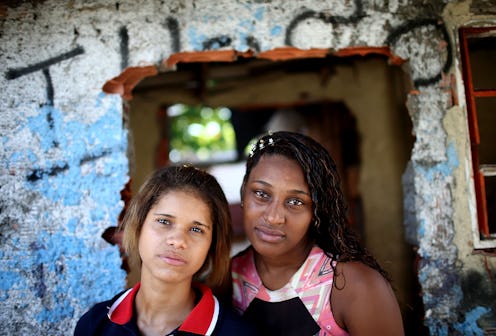News
Brazil Is Working Harder To Protect Women
On Monday, President Dilma Rousseff increased protection of the female population in her country, signing a femicide law that imposes harsher penalties in Brazil for the killing of girls and women. Under the country's new legislation, the criminal code defines femicide as any crime that involves domestic violence, contempt or discrimination against women. There will be a 12 to 30 years jail sentence for those convicted in the "aberrant" killing of a woman or girl in domestic violence, or because of her gender.
Even lengthier prison terms will be considered in the killing of a pregnant woman or one who has recently given birth, girls under 14, women over 60 or disabled, and for those charged with carrying out a homicide in the presence of the victim's child or parent, Al Jazeera reported.
Known as "Maria da Penha" law, it pays tribute to Maria da Penha Maia Fernandes, a woman who fought for years to convict her ex-husband for 14 years of relentless domestic abuse and two murder attempts that left her a paraplegic. Rousseff said that the legislation was part of the government's "zero-tolerance policy" towards violence against women, of which Brazil has a dreadful record — 15 women are killed daily, many as a result of domestic violence, and an estimated 500,000 women and girls are raped each year, though only some 10 percent of those cases are reported to authorities.
Women's rights groups lauded the bill as a victory for Brazilian women during Women's History Month, and days after the celebration of International Women's Day. Representative of UN Women in Brazil Nadine Gasman indicated her approval in a phone call with Reuters.
This law typifies femicide as a grave crime and identifies it as a specific crime against women. It's a way to talk about this problem, make it visible by giving it a name and increasing sanctions for this crime.
It has taken us a long time to say that the killing of a woman is a different phenomenon. Men are killed in the street, women are killed in the home. Men are killed with guns, women with knives and hands.
The "Maria da Penha" law isn't the first piece of legislation during Rousseff's term that aims at protecting girls and women. In August 2013, she signed a bill that required public hospitals to provide treatment against sexually transmitted diseases and infections, and to give rape victims access to emergency contraception, as well as abortion, which would otherwise be illegal in Brazil. The country now is among the handful of Latin American countries who have introduced similar laws, including El Salvador, who, according to BBC, has the world's highest murder rate for women.
Image: Getty Images
